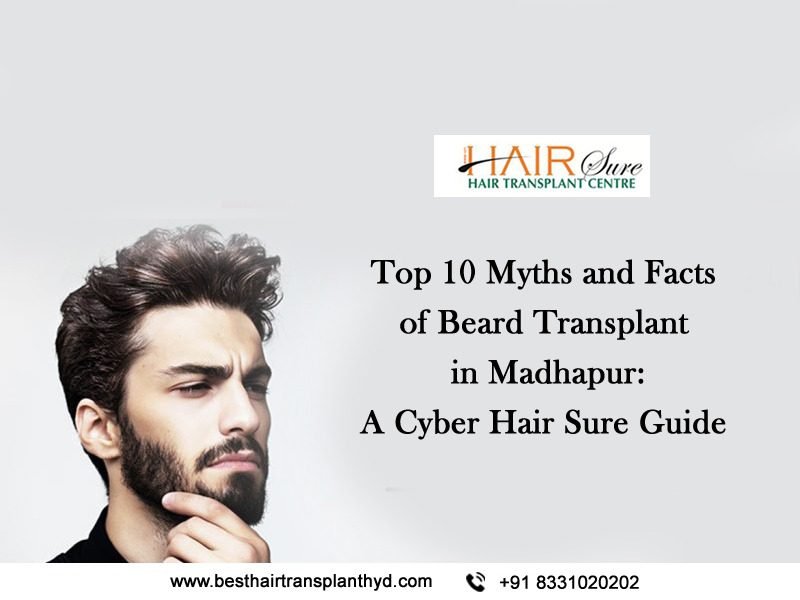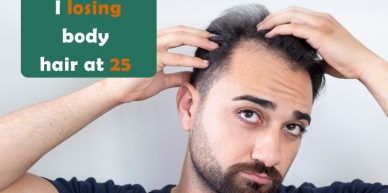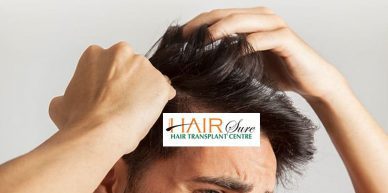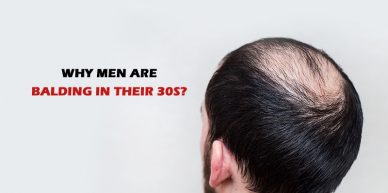Hair transplants are a cosmetic procedure for both men and women experiencing hair loss, often due to hereditary male or female pattern baldness. Hormonal changes, medical conditions, or trauma can also cause hair loss. The procedure involves taking hair follicles...
Top 10 Myths and Facts of Beard Transplant in Madhapur: A Cyber Hair Sure Guide

Men and women both experience common health problems, such as problems regarding hair loss, due to their busy daily schedules. Few men struggle with beard growth as men tend to place more weight on attractiveness. Their self-esteem is the most negatively impacted by this problem.
Men’s eligibility for beard hair transplants might vary in age based on a variety of personal variables and the advice of the surgeon doing the treatment. However, it is typically suggested that people postpone thinking about a beard transplant until they have achieved a steady age of hair development. For beard transplants, males in their late 20s or older are considered good candidates. It is so that the surgeon can more accurately determine the places that need transplanting and the general shape of the beard at this age when the pattern of facial hair development has typically matured.
When a person is younger, hair loss or uneven beard growth can occasionally be short-lived and become better with time. Before thinking about a transplant in these situations, it is advised to wait and watch how the beard develops.
Ultimately, the best time to get a beard hair transplant should be with a trained surgeon who can assess the patient’s unique situation and provide guidance.
Men commonly choose beard transplants for the following reasons:
Patchy or Sparse Beard: Some men may have patches on their faces where their beards are patchy or sparse. These bare spots can be filled with beard transplants to produce a larger, more even beard.
Facial Scarring: Facial hair development may be hampered by scarring from accidents, burns, or prior surgery. Scars can be hidden, and a natural-looking beard can be restored using beard transplants.
Genetics: Some people are predisposed to have facial hair that grows thinly or sparingly. Beard transplants may be an option for those who want a larger beard but have little natural hair growth.
Style and Aesthetics: Because many men view a long, well-groomed beard as a mark of masculinity, they choose to get beard transplants to get the look they want and to draw attention to their best facial features.
Gender Transition: A beard transplant can assist transgender people through a female-to-male transition in developing a more manly appearance and advancing their path towards gender affirmation.
Self-Confidence and Self-Esteem: A long beard is frequently linked to masculinity and attractiveness. Some men may get a beard transplant to enhance their self-esteem and self-image.
Individual reasons for getting a beard transplant can differ, so it’s important to speak with a trained surgeon or medical specialist about your motivations for getting one and whether you’re a good candidate.

Myths and facts about beard transplants:
Myth: Only guys who cannot naturally grow beards undergo beard transplants.
Fact: Beard transplants are not just performed on men with minimal facial hair development; they are also performed on individuals with full beards. Some people go on beard transplants to improve their beard or fill in bald spots.
Myth: Beard transplants always produce a beard that looks natural.
Fact: A beard transplant’s effectiveness depends on several variables, including the surgeon’s talent and the patient’s hair features. While most beard transplants provide natural results, problems or less ideal results are possible.
Myth: Beard transplants only take a few minutes.
Fact: Beard transplants need preparation, hair follicle extraction, and implantation during surgical operations. The time required varies, but it usually takes several hours.
Myth: Getting a new beard hurts.
Fact: Local anaesthesia is administered before beard transplants to guarantee the patient won’t experience pain. Nevertheless, some discomfort and soreness might be anticipated during the healing process.
Myth: All beard hair transplanted will grow at the same rate.
Fact: Synthetic facial hair may not grow as quickly as natural hair. The transplanted hair has a similar development cycle to the existing facial hair, and there may be some loss before regrowth.

Myth: Scars from beard transplants can be seen.
Fact: Beard transplants can be done with little scarring using cutting-edge methods like Follicular Unit Extraction (FUE). Individual hair follicles are extracted during FUE, producing very small, practically invisible scars.
Myth: There is a substantial danger of problems with beard transplants.
Fact: Just like with any operation, there is a chance of infection, bleeding, or scarring with beard transplants. However, the dangers are typically minimal when done by a qualified surgeon.
Myth: Beard transplants yield quick outcomes.
Fact: Before regeneration, transplanted hair goes through a shedding phase after a beard transplant. The transplanted hair takes several months to grow, and it may take up to a year to get the full effects.
Myth: Beard transplants need constant upkeep.
Fact: Transplanted facial hair can be cared for and maintained like natural facial hair once it has grown and developed. Regular grooming and care are required, but no special continuing maintenance for the transplanted hair is needed.
Myth: There is a 100% success rate with beard transplants.
Fact: Although beard transplants are generally successful, results might vary. General health, donor hair quality, and postoperative care influence success. Having reasonable expectations and speaking with an experienced surgeon is crucial.
Myth: Only older guys get beard transplants.
Fact: Only elderly males can get beard transplants. After attaining a stable age of hair development, younger people with uneven or sparse beard growth can also benefit from the process.
Myth: Scalp hair is always used in beard transplants.
Fact: Although scalp hair is frequently used for beard transplants, other locations, such as the chest or back, can also serve as potential donor sites, depending on the patient’s hair type and the surgeon’s suggestions.
Myth: Shaving the entire beard is necessary for beard transplants.
Fact: A beard transplant does not require a complete beard shave. Only the donor area and the transplanted areas might need to be trimmed or shaved to make the surgery easier.
Myth: Beard transplants cause a beard to instantly and permanently grow.
Fact: Beard transplants lay the groundwork for beard growth, but the results take time to manifest. It takes time for the transplanted hair to mature and goes through growth cycles.
Myth: Getting a new beard is expensive.
Fact: The cost of a beard transplant varies based on the extent of the treatment and the patient’s location, although it has become more widely available and reasonably priced in recent years.
Speaking with a licensed surgeon is crucial to receive accurate information, addressing specific issues, and deciding whether to undergo a beard transplant.
The city’s most prestigious set of clinics is cyber HairSure. The surgeons are so skilled that they provide ideal instructions for their patients before, during, after, and even during recovery. At the Hairsure clinic, we value our clients highly since we view each as unique and needing our undivided attention and care.
Depending on the degree of hair loss, the features of the natural hair, and the body’s reaction to the surgery, different people may experience different levels of success with hair transplants. Your chances of a successful outcome will rise by getting personalized advice from a skilled hair transplant surgeon.
Be aware that factors, including the patient’s particular circumstances, the surgeon’s skill, the quality of the donor’s hair, and postoperative care, might affect how well a hair transplant procedure works. By speaking with a knowledgeable practitioner, you can better grasp the potential advantages and decide if hair transplantation is the best option for you.
You can get a lot of advice to figure out the costs and find the surgeon that’s right for you. Remember, you shouldn’t skimp on costs that are influenced by the skill of the surgeon. Hiring the right surgeon can help you get the best results, even if it is more expensive. For the best treatment and affordable Hair Transplant cost in Hyderabad Madhapur, meet Cyber Hairsure Clinic at 040 49540202 / 8331020202.













